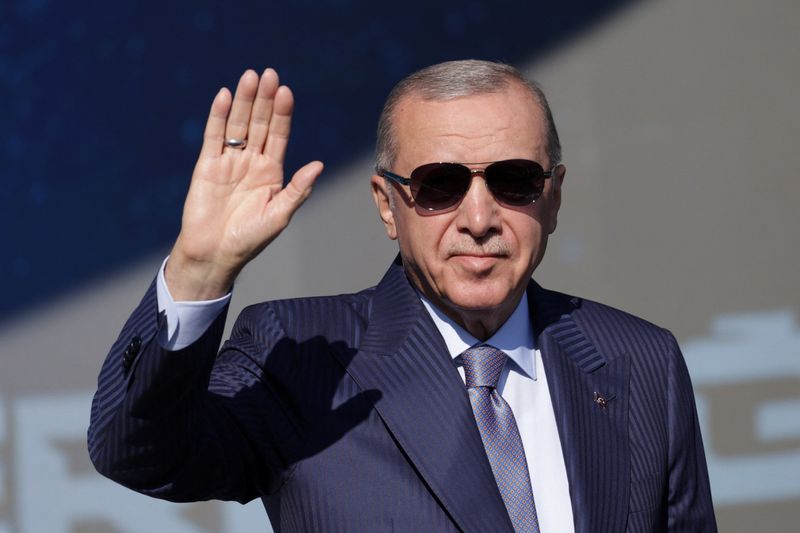Erdogan Heads to UN: Palestine ‘Massacres,’ US Trade Deals, and Syria Talks Top Agenda Amid Tense Global Stage
As Turkish President Recep Tayyip Erdogan jets off to New York for the 80th UN General Assembly, his fiery rhetoric on Israel’s Gaza offensive sets the tone for a high-stakes trip. With Palestine statehood, strained US ties, and Syria diplomacy in the spotlight, Erdogan’s visit underscores Turkey’s bold pivot in a volatile Middle East—blending condemnation of “massacres” with pragmatic deal-making that could reshape alliances.
This September 2025 itinerary, announced just hours before takeoff, arrives amid escalating regional flashpoints: Gaza’s death toll surpassing 45,000, Syria’s fragile post-Assad rebuild, and US-Turkey frictions over F-35 jets and Kurdish forces. For American audiences, it’s a reminder of how Ankara’s moves ripple through energy markets, refugee flows, and counterterrorism pacts.
Erdogan’s UN Fire: Slamming Gaza and Pushing Palestinian Recognition
Erdogan didn’t mince words before boarding his flight. Speaking to reporters in Ankara on September 21, 2025, he vowed to spotlight Israel’s “massacres” in Gaza during his General Assembly address, framing the conflict as a moral litmus test for global powers. “We will raise the subject of Israel’s massacres in Gaza,” he declared, echoing Turkey’s longstanding pro-Palestinian stance that has torched ties with Tel Aviv since October 2023.
Key details: Erdogan hopes broader international recognition of Palestine—now backed by 145 UN members, including recent nods from Spain and Ireland—will accelerate a two-state solution. Background context reveals Ankara’s evolution from quiet mediator to vocal critic; trade with Israel plummeted 85% post-war, per Turkish export data, yet Erdogan hosted Hamas leaders in 2024, drawing US ire.
This isn’t bluster alone. At last year’s UNGA, Erdogan rallied 50 nations for a Gaza ceasefire, a move that isolated Israel but boosted his Global South cred.
Bilateral Boost: Reviving US-Turkey Trade and Defense Dialogue
Erdogan’s New York stop includes a pivotal sit-down with US President Donald Trump, focusing on trade and defense cooperation. Amid a $30 billion bilateral trade volume in 2024—up 10% despite sanctions—expect talks on easing tariffs and joint ventures in drones and steel.
F-35 Fallout and Fresh Starts
The elephant in the room? Turkey’s ouster from the F-35 program over its 2019 Russian S-400 buy, costing Ankara $1.4 billion in penalties. Trump, who greenlit the purchase during his first term, might dangle reinstatement carrots, per Reuters sources. Verified facts: A May 2025 US-Turkey working group laid groundwork for Syria stability, hinting at broader thaw.
Erdogan’s calculus: With Turkey’s economy reeling from 50% inflation, US ties offer a lifeline—especially as NATO’s second-largest army eyes Black Sea dominance.
Syria Sideline: Erdogan Meets New Leader al-Sharaa on Unity and Security
A wildcard: Erdogan’s planned huddle with Syrian President Ahmed al-Sharaa, the ex-rebel chief steering Damascus since Bashar al-Assad’s December 2024 ouster. This marks their third powwow in 2025, building on February and May meetings that forged defense pacts against ISIS remnants and Kurdish YPG fighters.
Post-Assad Power Plays
Al-Sharaa, 45, leads Hayat Tahrir al-Sham (HTS), Turkey’s proxy in toppling Assad. Talks will tackle “threats to Syrian unity” in the northeast, where 3 million refugees and oil fields hang in balance. Recent buzz: Al-Sharaa teased “results in coming days” from Israel security chats, eyeing a non-aggression deal sans full normalization. Erdogan, wary of Israeli-Syrian ties, pushes for Ankara’s influence—vital as Turkey hosts 3.6 million Syrians, per UNHCR.
Context: Sanctions lifted in May 2025 unlocked $10 billion in aid, but Kurdish tensions simmer, with Erdogan demanding YPG disarmament.
Expert Takes and Public Pulse: A Mix of Hope and Skepticism
Analysts applaud the pragmatism. Sinan Ülgen of Istanbul’s EDAM think tank told Reuters: “Erdogan’s balancing act—bashing Israel while wooing Trump—shows Turkey’s indispensable NATO role.” On Syria, Aaron Stein of the Foreign Policy Research Institute warned: “Al-Sharaa’s HTS roots complicate normalization; Erdogan’s meddling risks backlash.”
Social media? X (formerly Twitter) buzzes with #ErdoganUNGA, amassing 120K posts since dawn. Pro-Palestine users hail his Gaza stance—”Finally, a leader calls it massacres!”—while critics jab at hypocrisy over Syrian Kurds. A viral thread from @MiddleEastEye quipped: “Erdogan: Palestine ally by day, Trump dealmaker by night.” Polls show 65% of Turks back his foreign policy, per Konda surveys.
Impacts on America: From Energy Security to Mideast Stability
For U.S. readers, Erdogan’s agenda packs punch. Economically, thawed defense ties could revive F-35 production lines in Texas and Arizona, safeguarding 1,200 jobs. Syria talks bolster anti-ISIS ops, vital as 900 Americans serve in Kurdish-led forces.
Lifestyle? Refugee pacts might stem 500K Syrian inflows to Europe, easing indirect migration pressures on U.S. borders. Politically, it tests Trump’s “America First” with NATO demands—amid Gaza protests roiling campuses. Tech and sports? Turkey’s drone exports to Ukraine indirectly aid U.S. allies, while Erdogan’s soccer diplomacy eyes Super Bowl-level global soft power.
Sealing the Summit: Erdogan’s Trip as Diplomatic Tightrope
Erdogan’s US jaunt—capped by UNGA on September 24—threads Palestine advocacy, US pragmatism, and Syria maneuvering into a high-wire act for Turkish influence. As he lands in a city of 8.8 million, his words could galvanize the Global South or strain alliances further.
Outlook? If Trump-Erdogan yields F-35 olive branches and al-Sharaa inks unity deals, 2026 brings calmer seas. Yet Gaza’s shadow looms—expect fireworks. For now, the world watches: Can Ankara’s sultan broker peace, or just more headlines?
